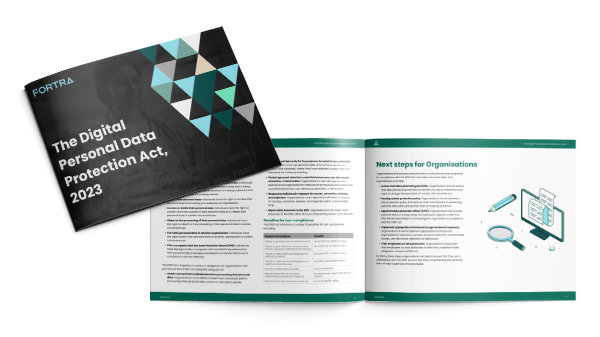Image

India’s Digital Personal Data Protection (DPDP) Act is reshaping how organizations handle personal data. Whether you're a domestic company or an international enterprise processing data of individuals in India, you need to understand this legislation.
What’s inside the guide:
- A breakdown of the DPDP Act’s seven core principles
- Key obligations for Data Fiduciaries and rights of Data Principals
- Practical insights into how the Act impacts data collection, processing, and storage
- Compliance strategies to help your organization avoid financial penalties and build trust
The DPDP Act introduces strict requirements for transparency, consent, and data protection. A single breach can lead to significant financial and reputational damage. Our guide helps you stay ahead of regulatory changes and strengthen your data protection strategy.